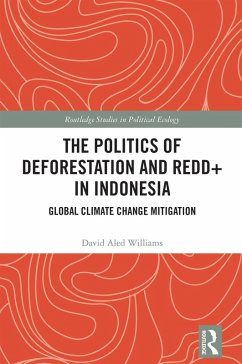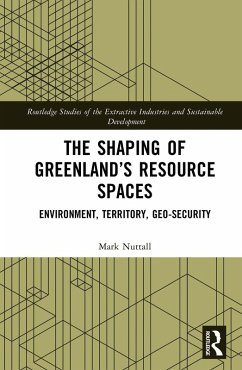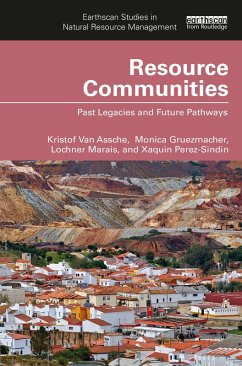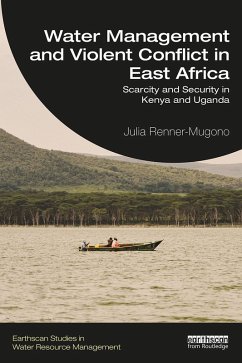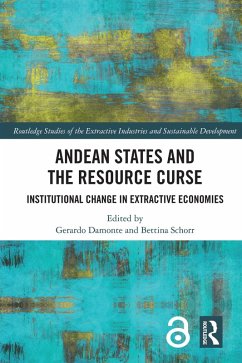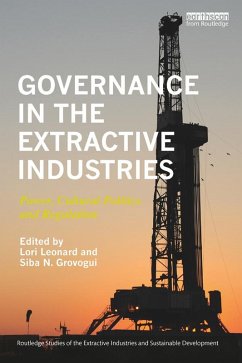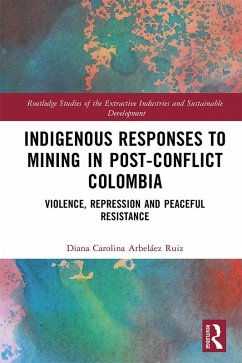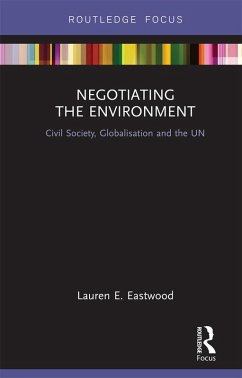
Governing the Palm Oil Industry (eBook, ePUB)
Perspectives from Southeast Asia and Latin America
Redaktion: O'Reilly, Patrick; Varkkey, Helena
Versandkostenfrei!
Sofort per Download lieferbar
39,95 €
inkl. MwSt.
Weitere Ausgaben:

PAYBACK Punkte
20 °P sammeln!
This book examines how different countries across Southeast Asia and Latin America respond to the emergence and expansion of the lucrative, yet controversial palm oil industry, paying attention to how national policy and governance regimes are shaping this global industry.With its historic roots in Southeast Asia, oil palm cultivation continues to expand beyond its historical centres. In Latin America, many countries are now developing their own policies to promote and govern oil palm cultivation. This book provides a unique examination of how different countries strive to strike a balance bet...
This book examines how different countries across Southeast Asia and Latin America respond to the emergence and expansion of the lucrative, yet controversial palm oil industry, paying attention to how national policy and governance regimes are shaping this global industry.
With its historic roots in Southeast Asia, oil palm cultivation continues to expand beyond its historical centres. In Latin America, many countries are now developing their own policies to promote and govern oil palm cultivation. This book provides a unique examination of how different countries strive to strike a balance between developmental and environmental concerns, through case studies on Indonesia, Malaysia, the Philippines, Thailand, Colombia, Brazil, Ecuador, Honduras, and Mexico, and an outlook for the industry's prospects in Africa. This book applies an assemblage approach to draw out lessons on the global challenges posed by the industry and how differing national governance regimes and communities might respond to them. Rather than a single global industry, the book unveils a complex arrangement of national and even local palm oil assemblages, indicating that there is more than one way to do palm oil. In doing so, the book contributes to a better understanding of the drivers and processes that shape the governance of the industry, both in different nations and globally.
This book will be of great interest to students and scholars of the palm oil industry, as well as those interested in natural resource governance, sustainable agriculture, conservation, environmental justice, and environmental and development policy more broadly.
With its historic roots in Southeast Asia, oil palm cultivation continues to expand beyond its historical centres. In Latin America, many countries are now developing their own policies to promote and govern oil palm cultivation. This book provides a unique examination of how different countries strive to strike a balance between developmental and environmental concerns, through case studies on Indonesia, Malaysia, the Philippines, Thailand, Colombia, Brazil, Ecuador, Honduras, and Mexico, and an outlook for the industry's prospects in Africa. This book applies an assemblage approach to draw out lessons on the global challenges posed by the industry and how differing national governance regimes and communities might respond to them. Rather than a single global industry, the book unveils a complex arrangement of national and even local palm oil assemblages, indicating that there is more than one way to do palm oil. In doing so, the book contributes to a better understanding of the drivers and processes that shape the governance of the industry, both in different nations and globally.
This book will be of great interest to students and scholars of the palm oil industry, as well as those interested in natural resource governance, sustainable agriculture, conservation, environmental justice, and environmental and development policy more broadly.
Dieser Download kann aus rechtlichen Gründen nur mit Rechnungsadresse in A, B, BG, CY, CZ, D, DK, EW, E, FIN, F, GR, HR, H, IRL, I, LT, L, LR, M, NL, PL, P, R, S, SLO, SK ausgeliefert werden.





